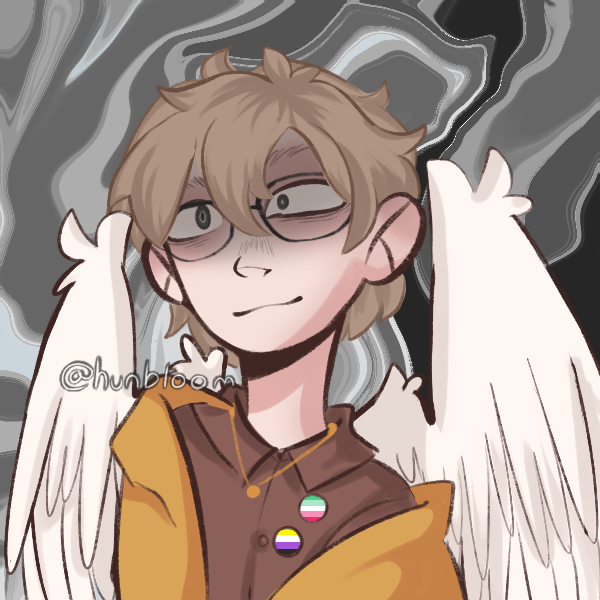I want to talk about our gateway products to open source. You know, that one product or software that made us go, “Whoa, this is amazing!” and got us hooked on the world of open source.
What made you to jump ships? Was it the “free” side of things like qBittorrent? Did you even know that some of your programs are open source before you got into the topic?
For me those products were:
- Android
- Firefox
- VLC
- Calibre
Am thinking to order some merch and I wanna make it more accessible to people unfamilliar with open source culture. Now, am looking for fairly normalized but still underrepresented product – maybe it could serve as a conversation starter and push some people to open source
My roommate installed Ubuntu on my laptop when I was in college. That was the start. Now it looks like this: https://xkcd.com/456/
Linux. I think I started playing with it around 2001. I was a computer nerd on high school and I wanted to be a hacker. I would be lying if I said that The Matrix wasn’t a big factor. To this day I use black console with green text.
Classy!
Like other people have said, I’ve used open-source software for decades without thinking about it, but what really made me think about it as a concept was when I got into Skyrim modding, and I saw the exorbitant subscription fees of Photoshop and then learned through that community about GIMP. Then, I started learning more about things like privacy and more tangible effects of corporate greed, and gradually switched to more alternatives.
However, I personally never tried a FOSS OS until the last couple months when someone on Lemmy talked me into trying Linux. I always thought it was only for people with high levels of technical skills, but it turns out there are distros that are extremely accessible to users like myself.
Man, that’s a rough entry point. I’ve been waiting for GIMP to get good for decades, and I’ve accepted now it’s probably not gonna happen.
You’re such a disappointment, GIMP. Blender is right there, why can’t you be more like Blender?
I think I’m blissfully unaware of what a good photo-editing software looks like since I’ve used GIMP for almost everything. I might struggle with an app that’s good actually, because I’ve learned in one that I’ve heard many times is hard to navigate.
Hah. Yeah, I guess it sucks having learned Photoshop before it was an outright scam, because there is no good alternative.
Let me caveat that: there’s actually great art software that’s either cheap or free and there are many basic quick photo editing apps. But broad image manipulation and in-depth photo editing? It’s GIMP or nothing, and GIMP is definitely not it.
I actually did use Paint.net at one point as well, because there was an improved format that GIMP just straight up didn’t support, so at one point I was creating textures for my mods in GIMP, then opening the files in Paint.net and exporting them again lol
To be fair, I’m not a graphic designer, but I did have to learn about things like using layers to create glow maps, so GIMP worked just fine for a scrub like myself, but I can understand for anything more serious it would have some limitations
Not a graphic designer either, so I also use it for, say scanning documents and stuff like that. But I’ll be honest, if it takes more than that I’ll often just load into some mobile app meant for the edit I need to make just to avoid GIMP’s backwards UI.
My biggest grip with mobile apps, even for simple edits, is that none of them seem to support layers. I understand maybe it’s a performance thing, but it sure would be nice to be able to do some very basic things in a pinch when I’m away from my laptop or PC.
Edit: *gripe
Note that for vector graphics editing, Inkscape is really good. That doesn’t help you if you need to edit photos, though.
Yeah, it’s just that specific hole in the landscape where GIMP has become the default and nobody else is doing better despite being the part of the ecosystem that Adobe holds with the tightest grip. It’s extremely annoying.
If you’re still looking, try Krita, it’s a polished and powerful open source image manipulation program.
deleted by creator
For me it was first VLC without really knowing what FOSS was, then KeePass while getting to know a bit about it, and finally Thunderbird. What did it for me was just how good and bullshit-free they were, especially in comparison to paid competitors.
I like to think of FOSS as enshitification-proof
FOSS is enshitification-hardened, not proof.
VLC remains awesome because the guy (maybe Jean-Baptiste Kempf?) that controls the project has refused to be bought, has in fact refused HUGE sums of money.
The original author of any project has to right to sell it with the corresponding licence changes at any time.
There’s some legal grey area on something like Linux or VLC which have MANY MANY developer hands in the pie, and existing users could certainly fork off the existing releases, but VLC could pivot tomorrow to a for profit company and make future releases of the official VLC a paid product, if they choose too.True, and so all honour to the creators for remaining FOSS, especially smaller projects spearheaded by a single dev
Altough usually when a shift like that happens in bigger projects there’s a community fork, and the original project withers. Like Owncloud -> Nextcloud , OpenOffice -> LibreOffice, MySQL -> MariaDB
You could argue there’s some degree enshitification through the Ubuntu snapification driven by Canonical. Although that’s not so much about making Ubuntu deliberately worse, it’s more moving Ubuntu forward in a way that aligns with Canonical’s strategic goals. So its “paying the strategy tax” rather than direct enshitification.
For collaborative projects like Linux I believe every contributor would need to agree to any license change, which is practically impossible
Linux Mint. I was trying to edit a video and was struggling to get anything to work properly in windows. I was frustrated and looking for solutions on YouTube when I came across Mental Outlaws channel somehow. The rest is history.
Mint was my first distro. My interest begun with LibreOffice, then W10 got unusable for me and rest is history.
I distrohopped a year ago but returned to Mint
Mint was my first distro, too. Some videos from ExplainingComputers and Switched To Linux (before he was a bigot) got me interested in the distro, and then my uncle gave me an old ThinkPad and a DVD of Linux Mint 19.2 “Tessa”.
After that, I installed Linux on all of my computers. I switched to Debian, then Fedora, then distrohopped for a bit before landing on my current configuration:
- Garnet: openSUSE Tumbleweed with KDE Plasma
- Amethyst: Arch Linux with Sway (possibly soon to be Void with Qtile)
- Pearl: crunchbang++ 12 (32-bit) with Openbox
- LapisLazuli: Fedora 38 with MATE
I just recently put linux mint on an old gaming laptop, and it actually functions well now! After that, I installed it on this mini PC we use for streaming, and I’m thinking my next rig (or at Windows 10 end of service) will be some form of Linux. I always heard it was so hard to use. I actually find Windows harder to use because I’m constantly battling against it thinking it knows better than I do.
Whoever said Linux was hard to use was either a Windows/macOS shill, a Gentoo noob, or said it back in the '90s or 2000s when Linux was mostly quite hard to use.
I’ve seen it a lot. Maybe not on Lemmy, but it was definitely something people parroted all over reddit.
Of course, I’ve also seen people on reddit say that Lemmy is so difficult to use, so I think a lot of people just say these things without having the slightest clue what they’re talking about.
@NumbersCanBeFun @graphito I distro shopped as well. Red hat, then Gentoo (5 years), then Debian (10 years) now arch (4 years). Each time there was an unavoidable reason forcing the change. Hopefully i never have to change from Arch again…
Using linux as an alternative to windows and really enjoying it.
Gaim.
GIMP and Mozilla Browser were a couple of my early ones as a Windows user, but I probably saw those as worse, or at least less polished, versions of other software. Gaim (later Pidgin) was the one that first made an impression on me.
AIM was important software — it basically was social media to me at the time — and I’d stumbled into using third-party add-ons (for example, DeadAIM) for the official AIM client to add extra features and block the in-app ad banner. But it was always a cat-and-mouse game where AOL would try to block add-ons and the developers would have to work around that.
Gaim was refreshingly immune to all that stuff… it simply didn’t support ads, and all its advanced features were built-in. That it supported other messaging protocols was a nice surprise too, and to this day has soured me on siloed, proprietary messaging apps. The GTK UI also looked and felt a little exotic on Windows XP.
When I finally moved to Ubuntu, having apps like Gaim, Firefox and GIMP ready to go made things pretty comfy.
deleted by creator
Apache. This was over 20 years ago. The web server that everyone seemed to be using was free to download and open source. That made a big impact on how I viewed free software, and encouraged me to use more of it.
I don’t remember how I heard about it but you used to be able to order free Ubuntu disks. I got them to mail me one and I replaced Windows with it and never looked back.
Getting a free Ubuntu live CD back in 2007 when I was a teenager. We had the shittiest internet, I think it was like 512kbps ADSL, so it was really hard to download software. No one I knew at the time was into linux or open source, so I learnt about it all from that Ubuntu CD and the smaller programs I downloaded with it once setting it up. I learnt GRUB and dual-booted it on the laptop I had for school.
Simply because I haven’t seen it mentioned yet: 7-zip
But realistically VLC and FirefoxMy first contact to FOSS were probably Firefox, Open Office (before libre office existed) and Gimp.
My computer suddenly died when I was an unemployed student, about 12 years ago. I had no money for a new one or repairs, etc. It was pretty devastating.
Then I somehow discovered my city’s local Freegeek, (the one in Vancouver BC) - I was able to buy an refurbished Ubuntu tower for $35. They showed me how to use it, invited me back if I needed help, and were generally super kind and helpful.
It was a very nice introduction to the world of open source. I had no clue such a thing as free software and OS even existed before then. Ive been using linux ever since, as much as possible.
It was Mozilla for me back in 2000. I gradually replaced all the proprietary apps I was using on Windows with FLOSS alternatives and then finally made the mover to Linux around 2010. The only closed stuff I use now is an iPhone and I despise it.














